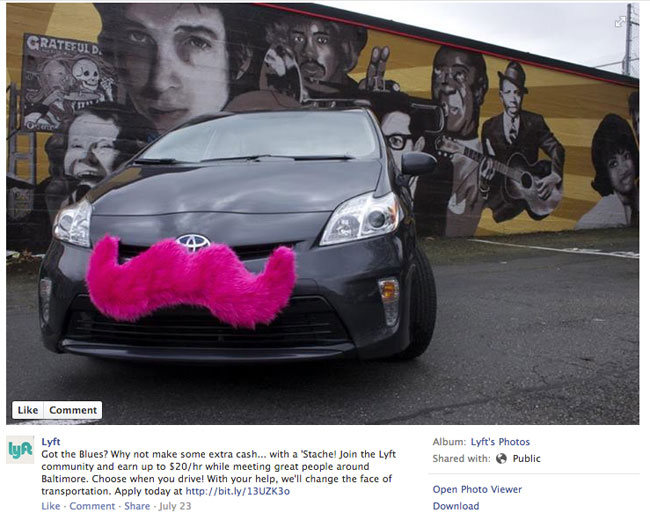It’s tough to stand out in today’s cutthroat ridesharing market. Consumers, who can hail either an Uber or a Lyft virtually anywhere, are fickle — swayed only, perhaps, by the company that currently has the best deal or promo going (the free market, ladies and gentlemen!).
But maybe, just maybe, ridesharing companies can win loyalty (and the requisite stable income) with a subscription service model. Lyft, formerly of the fuzzy pink mustache, is testing such a model in D.C. (and five other cities) next month.
The subscription, called “Lyft Line Pass,” has two membership tiers — pay $20 and every Line trip (shared trip) you take will cost just $2, or pay $29 and every Line trip is free. Passes for November are now on sale, but must be purchased by Oct. 31. It’s like a bus pass.
The model is not new, not even to ridesharing. In August, Uber tested a “POOL Pass” option, offering $1 uberPOOL trips (up to 20 of them) for $30 up front. Now, according to my app, Uber has “Uber Plus” available — 10 $2 uberPOOL rides (or $8 uberX rides) for $10 up front.
The subscription model makes a lot of sense as a business model for ridesharing — it locks in fickle users. A subscription also positions the ridesharing services as fairly affordable commute options, which sounds like a nightmare for time spent in D.C. traffic but then again maybe, given SafeTrack, this is a tradeoff you’re willing to take.
As usual, then, Uber and Lyft are competing on the margins. So the question is — which will customers choose? And how will they decide what to choose?
Before you go...
Please consider supporting Technical.ly to keep our independent journalism strong. Unlike most business-focused media outlets, we don’t have a paywall. Instead, we count on your personal and organizational support.
Join our growing Slack community
Join 5,000 tech professionals and entrepreneurs in our community Slack today!

The person charged in the UnitedHealthcare CEO shooting had a ton of tech connections

From rejection to innovation: How I built a tool to beat AI hiring algorithms at their own game

The looming TikTok ban doesn’t strike financial fear into the hearts of creators — it’s community they’re worried about

